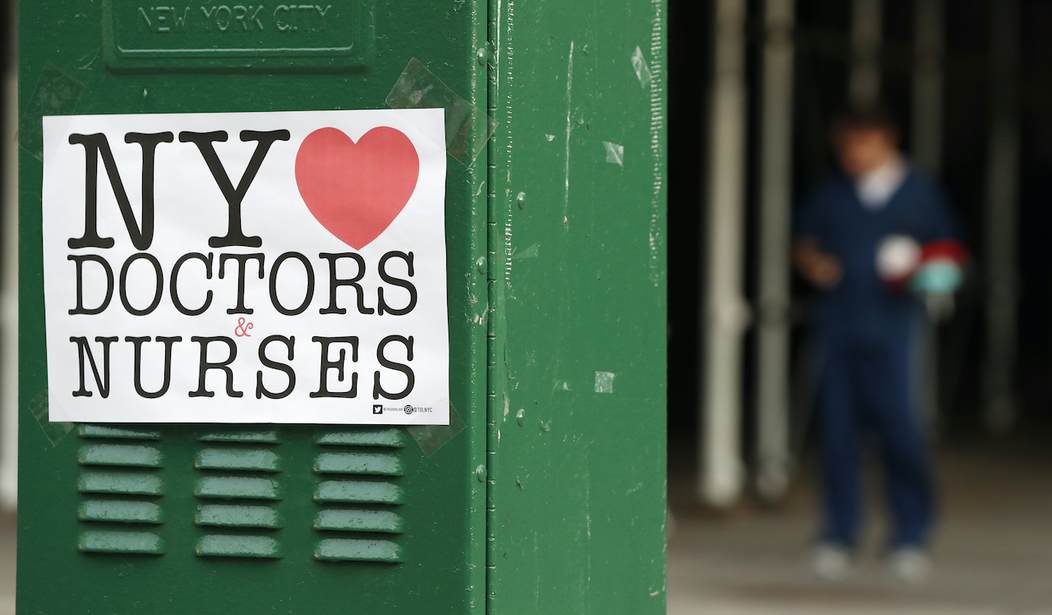One good thing about the meteoric rise of social media’s popularity is that it has allowed its users the opportunity to connect with people from other parts of the country – and the world – who perhaps they otherwise never would have, to get myriad perspectives about their culture, their views about everyday life, and why people believe the way they do.
On the other hand, that “good thing” I mentioned above can sometimes be a bad thing, as it also allows people who have too much time on their hands – some of who we’ve been reliably told are our intellectual betters – the chance to make complete fools of themselves, as has been documented so many times at this site alone alone that I’ve lost count.
This brings me to the topic of today’s discussion, a rant by woke Dr. Rachel Zoffness, an author and pain and health psychologist who describes herself as “a leading global pain expert and thought-leader revolutionizing the way we understand and treat pain.”
Zoffness, who is also an Assistant Clinical Professor at the UCSF School of Medicine as well as a Stanford lecturer, took to the Twitter machine to go off on what she perceived as a major slight in her profession – “a male physician colleague” who had the nerve to refer to her as a “girl”… in the context of trying to pay her a compliment.
Instead of providing the text of the tweets, I’m including the embedded versions of two of them in this post because obviously, she was using emojis to emphasize the emotions she felt over the horrific insult of being called a girl:
Just had a male physician colleague refer to me as a "girl."
As in, "I love working with you girls." 😑🤬
I have a PhD. Teach at Stanford & UCSF. Wrote 2 books. On the board of international pain orgs. What will it take to be considered an equal in medicine??? 👎🏼#SoTiredOfThis
— Dr. Rachel Zoffness (@DrZoffness) November 16, 2022
In her next tweet, Zoffness urged her “confused” male colleagues to “BE THE CHANGE” after confirming that she was in fact a doctor and a woman, not a girl nor a child:
We are doctors, not "girls." We are women, not schoolchildren 👧🏻🍭
If confused, call us by our TITLES.💥
Men don't have to ask. Why do we??
BE 👏🏼THE 👏🏼CHANGE 👏🏼
Advocate. 🌟thank you for coming to my @TEDTalks 😑#WomenInMedicine #WomeninScience #MedTwitter #psychtwitter
— Dr. Rachel Zoffness (@DrZoffness) November 16, 2022
Next, Zoffness proclaimed without evidence that her “male colleague” always refers to his fellow male doctors as “doctor” but not the female doctors.
“To be clear, I have no issue with the term ‘girl’ in certain contexts – pop songs, Girls Night Out, ballfields. But when a male colleague refers to the men in the room as ‘Dr.’ and you as a ‘girl,’ there’s a clear problem,” Zoffness concluded, adding an eyeroll emoji at the end.
My first thought after I read this was “honey, get over yourself.” I mean I spent three days in a hospital earlier this month with my mom after she had surgery, and being called “girl” doesn’t even rank in the top 1,000 of the issues I saw the nurses and doctors there deal with, sometimes from patients, sometimes with each other. Not to mention what doctors and nurses have had to go through since the start of the Wuhan virus pandemic.
But just when I was thinking Twitter was a hopeless bowl of dumb with zero chance of redemption, common sense prevailed as an epic schooling commenced among those in the comments.
“You can agonize over it, or you can approach it with humor: ‘You boys aren’t bad either.’ Eating your heart out over every slight from every clueless person in the world will only steal your joy and keep you from being all you can be,” advised one Twitter user.
Another noted that “You have an incredible life, and you spend a nano-second worried because someone used the term “girl” and (admittedly) did it as a way to show genuine enjoyment at working with you? I guess you can spend your time however you wish, but I think you should rethink things.”
Rhetorical questions were also asked.
“Do you ever find it exhausting when frantically looking for and finding offense where none was given or intended?” wondered “Casually Greg.”
Thoughts and prayers were also offered, just because:
— Scott Morefield (@SKMorefield) November 17, 2022
Keep in mind, too – and I suspect guys will back me up on this – but guys call their male friends and co-workers various forms of “my dudes,” “my bros,” “my homeboys,” etc. in both personal and professional settings, and obviously it’s not meant as a slight there, either.
One thing Zoffness mentioned that was right (but not in the way she intended) is that context matters. Her male colleague was clearly trying to compliment her (based on what she said about the interaction), perhaps trying to lighten the mood or whatever. Had he been in a room with her and said “come here, girl” or something along those lines, I can maybe see feeling slighted but not when someone appears to genuinely be trying to be nice and collegial in their own innocent way.
There are so many actual slights we (men and women alike) face in this world, and yes, some are unique to women. That being said, it is imperative that women be able to clearly differentiate between what is an actual slight versus something meant to be a compliment and/or to be inclusive. Because women who go around looking under old, worn-out rugs for something to get offended over make it so much harder for those who really are experiencing issues to be heard and, more importantly, believed.
Enough already.
Flashback: NFL Announcer Praises Female Football Fans, the Idiotic Reactions Were About as 2020 as It Gets













Join the conversation as a VIP Member